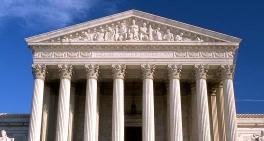Drivers challenge license suspensions for unpaid court debt
Headline Legal News
It can start with a couple of traffic tickets. Unable to pay the tickets right away, a driver becomes saddled with late fees, fines and court costs. Soon, the driver may be taken off the road indefinitely.
More than 40 states allow the suspension of driver’s licenses for people with unpaid criminal or traffic court debt.
But now, advocates across the country are pushing to change that, arguing that such laws are unconstitutional because they unfairly punish poor people and violate due process by not giving drivers notice or an opportunity to show they cannot afford to pay the fees.
Lawsuits have been filed in at least five states over the past two years.
“It’s not that I don’t want to take care of what I owe. I really wish I could,” said Brianna Morgan, a single mother from Petersburg, Virginia, who hasn’t had a license in three years because she owes more than $400 in traffic fines and court costs from traffic violations and a disorderly conduct citation.
“I really don’t have a way to pay it,” said Morgan, who supports herself and her three children on a monthly disability check.
Advocates had a victory this week in Tennessee, where a federal judge ruled that a law that allows the state to revoke the licenses of low-income people with unpaid court debt from past criminal convictions is unconstitutional.
U.S. District Judge Aleta Trauger called the law “powerfully counterproductive” and ordered Tennessee to stop revoking licenses and to reinstate the licenses of people who had theirs revoked due solely to nonpayment of court fees.
“If a person has no resources to pay a debt, he cannot be threatened or cajoled into paying it; he may, however, become able to pay it in the future. But taking his driver’s license away sabotages that prospect,” Trauger wrote in her ruling Monday.
In Virginia, nearly a million people currently have suspended driver’s licenses at least in part because of unpaid court debt, according to the Legal Aid Justice Center, a nonprofit that is challenging the practice in a federal lawsuit. A judge dismissed the case on jurisdictional grounds, but in a ruling in May, the 4th U.S. Circuit Court of Appeals gave the case new life, sending it back to the lower court to allow the plaintiffs to revise the lawsuit.
Millions of drivers nationwide have lost licenses because of such laws. In a study released in September, the justice center estimated that 4.2 million people then had suspended or revoked licenses for unpaid court debt in five states alone: Virginia, Tennessee, Michigan, North Carolina and Texas.
Related listings
-
Clicking 'checkout' could cost more after Supreme Court case
Headline Legal News 04/16/2018The Supreme Court is hearing a case this week that could affect how much customers pay for online purchases.At issue is a rule saying that businesses don't have to collect state sales taxes when those businesses ship to a state where they don't have ...
-
Wisconsin Supreme Court primary will leave just two
Headline Legal News 02/11/2018The latest battle over the ideological balance of the Wisconsin Supreme Court plays out in the Feb. 20 primary, where one of three candidates will be eliminated ahead of a spring election.Partisan politics have weighed heavy over weeks of campaigning...
-
Steve Mostyn, Houston attorney and major Dem donor, dies
Headline Legal News 11/20/2017Steve Mostyn, a prominent Houston trial attorney and a top Democratic Party donor, has died. He was 46.In a statement, his family confirmed Thursday his death on Wednesday "after a sudden onset and battle with a mental health issue.""Steve was a belo...

What Is Meant by ‘No-Fault’ Workers’ Compensation in Illinois?
If you were injured in a work-related accident and have been researching workers’ compensation, you may have seen it described as a “no-fault” system. One of the most important things to understand about the workers’ compensation system in Illinois is that it is based on a “no-fault” system. What does this mean, exactly?
Most employers in Illinois are required by law to have workers’ compensation insurance. And the workers' compensation in Illinois is a “no-fault” system, which means that any worker who has been hurt on the job is entitled to workers' compensation benefits. If you have been hurt on the job, you are entitled to workers’ compensation benefits no matter whose fault the accident was.
A no-fault insurance system, such as workers’ comp, works by paying claims regardless of who is to blame for an accident. This provides an important layer of protection for injured workers, sparing them from having to through additional litigation and the through the additional burden of proving who was at fault before receiving benefits.
In Illinois, even though you don’t have to prove that your injury was your employer’s fault, you do have to prove that your injury happened at work or as a result of work. If you would like help to file your workers' compensation claim, Krol, Bongiorno, & Given’s experienced workers' comp lawyers are here to help. With over 60 years of combined legal experience, the KBG law firm is a leader in the field of workers’ compensation law and we have earned the reputation as aggressive advocates for injured workers before the IWCC.




